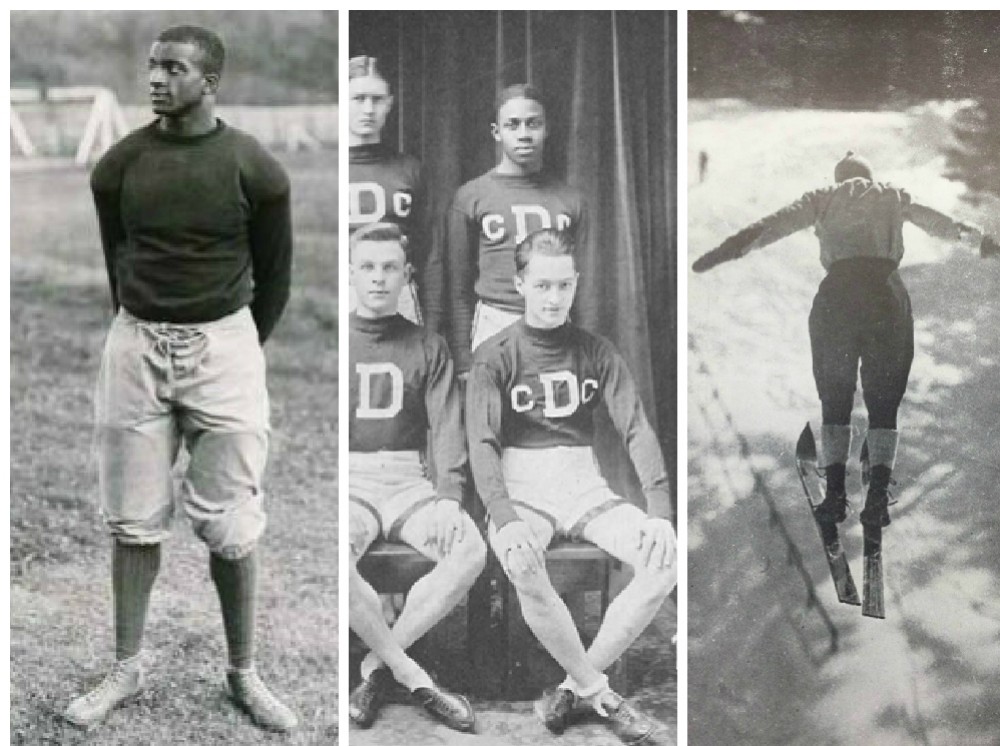Early Life:
Talley Robert Holmes, Jr. was born in Washington, D.C. on December 9, 1888, the son of Talley Sr. and Annie Holmes. He attended M Street High School, an African-American high school that offered its students both a rigorous curriculum and excellent teachers, which were extraordinarily scarce resources for blacks during the early 20th century. Holmes was an extremely talented tennis player who had the potential to be a valuable asset to the Dartmouth team.
At Dartmouth:
Perhaps the most telling aspect of Holmes’ time at Dartmouth was his involvement, or lack thereof, with the tennis team. Although he was an avid player, and highly talented as evidenced by his later success in the sport, Holmes does not appear in any of the tennis team yearbook photos or on any of the recorded rosters. The Dartmouth tennis coach is not listed in the yearbook, but Holmes’ exclusion from the team was likely a result of racial discrimination by authority figures such as the coach and team captains. While several black athletes did indeed compete for Dartmouth during the years preceding and following Holmes’ stay, his absence from the team is illustrative of the systematic racial barriers that existed for blacks at the time.

(2) The original logo of the American Tennis Association, of which Holmes was a founding member in 1916, and inaugural champion in 1917.
Professional Life:
After graduation, Holmes began his nearly 50 year career as a teacher at Franklin High School, a local public school in D.C. Holmes taught German, French, Latin, and mathematics during his tenure as a teacher. Holmes began a successful real estate business, expanding throughout the D.C. area. In 1934, he became the owner of the Whitelaw Hotel—the largest hotel in D.C. available to blacks—and made great strides to promote it as a parallel, but equal, black institution. Holmes was also chosen to serve on the original Board of Directors for the Industrial Bank of Washington, a black financial institution that would become largest of its kind. Most importantly, Holmes was one of the founding members of the American Tennis Association (ATA), a black organization aimed at providing opportunities in tennis to African Americans, despite the racially exclusive nature of the United States Tennis Association at the time. Holmes not only founded the ATA but was also its inaugural champion in 1917, winning a dozen total ATA titles over the course of his career. His involvement in these many black institutions was indicative of his dedication of advancement of black social, economic, and athletic opportunity.
Photo Sources:
(1) Dartmouth College. Aegis 1910. (Hanover, NH: Graduating Class of 1910, 1910), Rauner Special Collections Library, Dartmouth College, Archives Reading Room.
(2) “History of the American Tennis Assocation.” American Tennis Association. Last modified 2014. http://www.americantennisassociation.org/ata-history/.
(3) Cook, Patricia M. “‘Like the Phoenix’: The Rebirth of the Whitelaw Hotel.” Washington History 7, no. 1 (Spring/Summer 1995): 4. http://www.jstor.org/stable/40073134.



